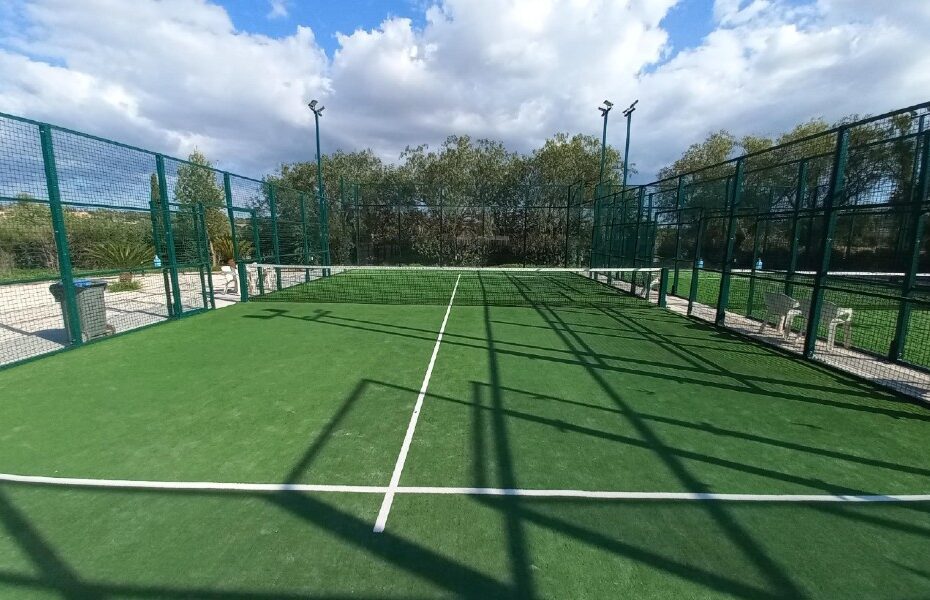“Exploring the World of Tennis in Portugal: A Rising Star on the Global Stage
Related Articles Exploring the World of Tennis in Portugal: A Rising Star on the Global Stage
Exploring the World of Tennis in Portugal: A Rising Star on the Global Stage

Portugal, a land celebrated for its rich history, stunning coastlines, and vibrant culture, is increasingly making a name for itself in the world of tennis. While football has long reigned supreme as the nation’s favorite sport, tennis is experiencing a surge in popularity, fueled by rising stars, world-class tournaments, and a growing passion among its people. This article delves into the multifaceted world of tennis in Portugal, exploring its history, current landscape, key players, developmental initiatives, and future prospects.
A Historical Overview: Seeds of the Game
The history of tennis in Portugal can be traced back to the late 19th century, mirroring the sport’s emergence in other European nations. Initially, tennis was largely confined to the elite social circles, played in private clubs and exclusive resorts. The founding of the Portuguese Tennis Federation (Federação Portuguesa de Ténis) in 1925 marked a significant step towards formalizing the sport and promoting its growth.
Early pioneers like António Casanova and Eduardo de Souza laid the groundwork for future generations. While Portugal didn’t immediately produce Grand Slam champions, these early players demonstrated a dedication to the sport and helped establish a foundation for its development.
The Current Landscape: A Flourishing Ecosystem
Today, tennis in Portugal is a thriving ecosystem, encompassing professional tournaments, amateur leagues, junior development programs, and a growing base of recreational players.
-
Professional Tournaments: Portugal hosts several prestigious tournaments on the ATP and WTA circuits, attracting international talent and showcasing the country’s ability to host world-class sporting events. The Millennium Estoril Open, an ATP 250 event held annually in Estoril, is a highlight of the Portuguese tennis calendar. This tournament has attracted top players like Novak Djokovic, Roger Federer, and Andy Murray in the past, providing Portuguese fans with the opportunity to witness world-class tennis firsthand. Additionally, Portugal hosts several Challenger-level events, providing opportunities for up-and-coming players to gain valuable experience and ranking points.
-
Amateur Leagues and Clubs: A network of tennis clubs and amateur leagues spans the country, catering to players of all ages and skill levels. These clubs serve as hubs for social interaction, fitness, and competitive play. Many clubs offer coaching programs for both adults and juniors, fostering a love of the game and developing the next generation of talent.
-
Junior Development Programs: Recognizing the importance of nurturing young talent, the Portuguese Tennis Federation and various private academies have invested heavily in junior development programs. These programs provide structured training, coaching, and competitive opportunities for aspiring players, helping them develop their skills and reach their full potential.

Key Players: Leading the Charge
Portugal has produced a number of talented tennis players who have achieved success on the international stage. While a Grand Slam champion remains elusive, several players have made significant strides and inspired a new generation of Portuguese tennis enthusiasts.
-
João Sousa: Arguably the most successful Portuguese tennis player of all time, João Sousa has reached a career-high ranking of world No. 28. He has won four ATP titles, including the Estoril Open in 2018, becoming the first Portuguese player to win a title on home soil. Sousa’s aggressive playing style and unwavering determination have made him a fan favorite and a role model for aspiring players.
-
Pedro Sousa: Another prominent figure in Portuguese tennis, Pedro Sousa has achieved a career-high ranking of world No. 99. He has won multiple Challenger titles and has represented Portugal in the Davis Cup. Sousa’s consistent performance and dedication to the sport have earned him respect within the tennis community.
-
Frederico Silva: A rising star in Portuguese tennis, Frederico Silva has shown great promise in recent years. He has won several Challenger titles and has the potential to break into the top 100. Silva’s powerful serve and aggressive baseline game make him a formidable opponent.
-
Nuno Borges: Nuno Borges is a player who has been on the rise in recent years, with a strong serve and forehand.
-
Francisca Jorge: Francisca Jorge is a promising talent on the women’s side, showing potential for future success.
These players, along with others, are flying the flag for Portuguese tennis and inspiring a new generation of players to pursue their dreams.
Developmental Initiatives: Building for the Future
The Portuguese Tennis Federation and various private organizations have implemented several initiatives to promote the growth of tennis at all levels.
-
National Training Centers: The federation operates national training centers that provide high-performance coaching and training facilities for promising junior players. These centers offer a structured environment for young players to develop their skills and prepare for international competition.
-
Coaching Education Programs: Recognizing the importance of quality coaching, the federation offers coaching education programs to train and certify tennis coaches. These programs ensure that coaches have the knowledge and skills to effectively develop players of all levels.
-
Grassroots Programs: To broaden the reach of tennis, the federation supports grassroots programs that introduce the sport to children in schools and communities. These programs aim to make tennis more accessible and encourage participation at a young age.
-
Partnerships with Schools and Clubs: Collaboration between the federation, schools, and tennis clubs is crucial for promoting tennis among young people. These partnerships facilitate access to facilities, coaching, and competitive opportunities.
Challenges and Opportunities: Navigating the Path Ahead
Despite the progress made, tennis in Portugal faces several challenges.
-
Funding and Resources: Compared to more established tennis nations, Portugal has limited funding and resources for tennis development. This can hinder the ability to provide adequate support for players, coaches, and infrastructure.
-
Competition from Other Sports: Tennis faces stiff competition from other popular sports, particularly football. Attracting and retaining young players requires sustained effort and effective marketing.
-
Geographical Limitations: Portugal’s relatively small size and population can limit the pool of potential tennis players. Expanding the reach of tennis to underserved communities is essential for identifying and developing talent.
However, there are also significant opportunities for growth.
-
Leveraging Success Stories: The success of players like João Sousa can inspire a new generation of Portuguese tennis enthusiasts. Showcasing these success stories can attract more young people to the sport.
-
Developing Tourism and Tennis: Portugal’s popularity as a tourist destination can be leveraged to promote tennis tourism. Offering tennis packages and hosting tournaments can attract international visitors and generate revenue for the sport.
-
Embracing Technology: Utilizing technology, such as online coaching platforms and data analytics, can enhance training and improve player performance.
The Future of Tennis in Portugal: A Promising Outlook
The future of tennis in Portugal looks promising. With a growing base of players, dedicated coaches, and supportive organizations, the sport is poised for continued growth and success. The emergence of talented young players suggests that Portugal may soon produce its first Grand Slam champion.
-
Continued Investment in Junior Development: Prioritizing investment in junior development programs is crucial for nurturing the next generation of talent. Providing young players with access to quality coaching, training facilities, and competitive opportunities will help them reach their full potential.
-
Strengthening the Professional Circuit: Hosting more ATP and WTA tournaments in Portugal will provide opportunities for Portuguese players to compete at home and gain valuable experience. These tournaments will also attract international attention and promote the country as a tennis destination.
-
Building a Stronger Tennis Culture: Creating a stronger tennis culture through increased media coverage, community events, and fan engagement will help to raise the profile of the sport and attract more participants.
-
Strategic Partnerships: Forming strategic partnerships with international tennis organizations, sponsors, and other stakeholders can provide valuable resources and expertise.
In conclusion, tennis in Portugal is a sport on the rise, fueled by passion, dedication, and a growing ecosystem of players, coaches, and organizations. While challenges remain, the future looks bright for Portuguese tennis, with the potential to achieve even greater success on the global stage. By continuing to invest in junior development, strengthening the professional circuit, and building a stronger tennis culture, Portugal can solidify its position as a rising star in the world of tennis.

